Subtotal: 950 PKR
Sufism and Shariah
Out of stock
690 PKR
Out of stock
CompareAuthor: Muhammad Abdul Haq Ansari
Publisher: Islamic Foundation
Pages: 368
Binding: Softcover
ISBN: 0-86037-149-2
About the Book: Sufism and Shari’ah is a study of the religious thought of an outstanding Sufi and a great renovator of Islam, Shaykh Ahmad Sirhindi (d. 1034/1624). But more than that it is an investigation into the relation of Sufism with Prophetic Islam, not only in the light of the ideas of Shaykh Sirhindi but also of many great leaders of Sufism and founders of Sufi orders. It distinguishes between the Sufism which has a place in Islam, and that which does not. The view of Sufism which has been elaborated in the book is sure to call for a revision of the image of Sufism which has emerged from the study of the subject over more than a century.
About the Author: Dr. Muhammad Abdul Haq Ansari, born in 1931 at TamkohiDeoria (U.P.), India, had his early education at Gorakhpur and then pursued a course of Arabic and Islamic Studies at the Darsgah Jama’at Islami, Rampur. He has a Ph.D. in Philosophy from the Muslim University, Aligarh, and an M.A. in Comparative Religion and Christian Theology from Harvard University, U.S.A. Dr. Ansari has taught at the universities of Santiniketan (Bengal), Omdurman (Sudan) and Dhahran (Saudi Arabia). For more than ten years, he has pursued research in various aspects of Islamic thought at the Centre for Academic Research, Imam Muhammad b. Saud Islamic University, Riyadh. Dr. Ansari has published three books on Islamic ethics: The Ethical Philosophy of Miskawayh, The Moral Philosophy of al-Farabi, and The Islamic Ideal (Urdu). He has translated the Muqaddamat al-Tafsir and Risalah al-Ubudiyah of Ibn Taymiyah, and a selection from his writings on faith, man and society under the title Ibn Taymiyah Expounds Islam. He has also translated Ibn Abi ‘1-Izz, Sharh al-Aqidah al-Tahawiyah (Commentary on the Creed of al-Tahawi). Besides, Dr. Ansari has contributed articles to various books and published dozens of papers in Islamic theology, philosophy, ethics and Sufism, as well as some comparative studies in Islam and Christianity.
Based on 0 reviews
Be the first to review “Sufism and Shariah”
| Weight | 0.51 kg |
|---|---|
| Dimensions | 2 x 15 x 21 cm |
| Publisher |

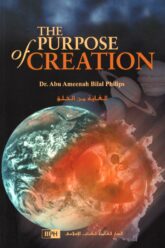 The Purpose Of Creation
The Purpose Of Creation 
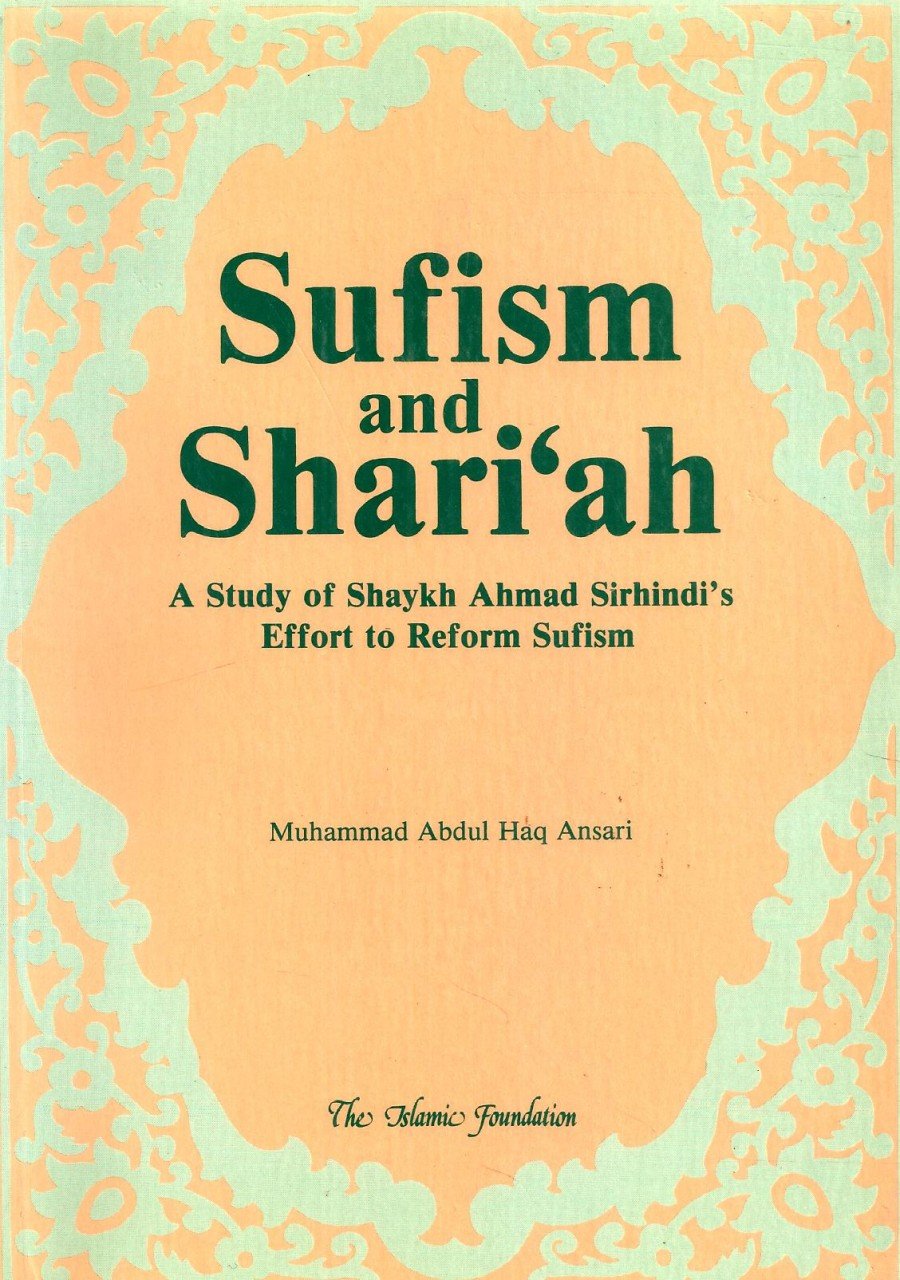
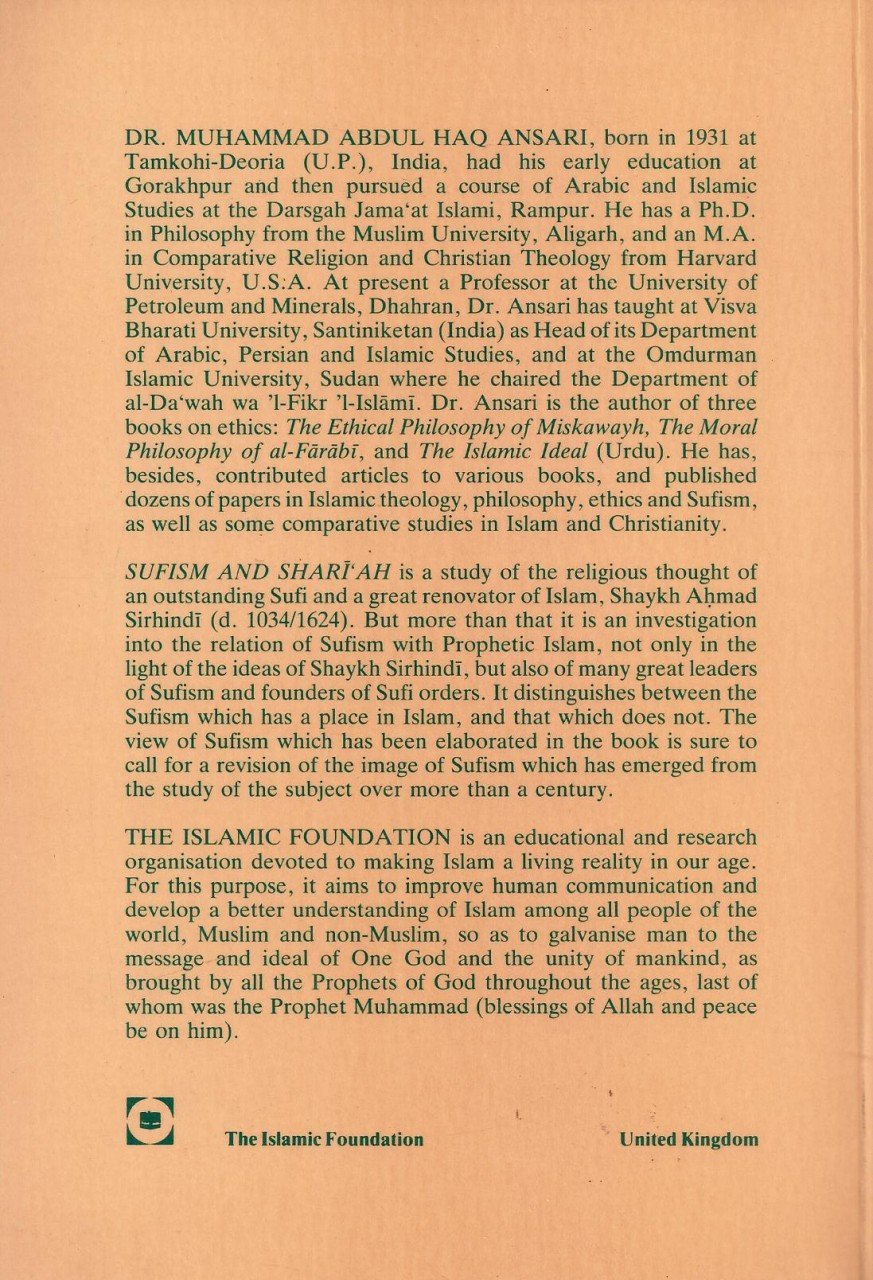
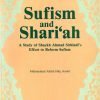
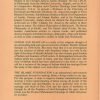
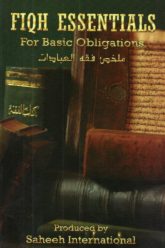
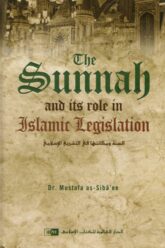
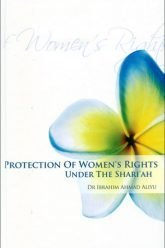
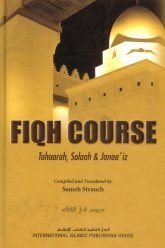
There are no reviews yet.